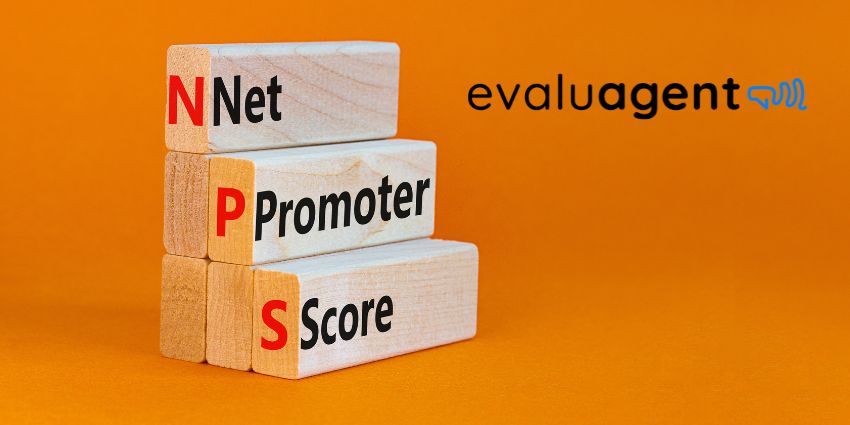Ensuring your company lives up to customer expectations is crucial in today’s world. Customers don’t just want excellent experiences on every channel, they demand them. If your contact center isn’t delivering highly efficient, convenient, and personalized experiences, you’ll lose your customers.
In fact, 73% of customers will switch to a competitor after multiple poor experiences, no matter the quality of your product or service.
To ensure they can compete in this landscape, most contact centers monitor a range of metrics, including NPS (Net Promoter Score). NPS surveys can offer companies a valuable insight into their customer’s satisfaction level, by tracking how likely those consumers are to recommend a company to someone else. The only problem? These surveys are extremely limited.
NPS customer survey insights aren’t a reliable measure anymore, and here’s why.
The Problems with NPS as a CX Metric
To measure Net Promoter Score, companies send surveys to their consumers, asking them to share how likely they are to recommend a company to a friend or colleague, using a numbered scale. At first, many contact centers relied heavily on this metric, viewing it as an excellent way to get direct insights into customer satisfaction.
However, the insights you get from an NPS survey are inherently limited. Why?
Customers Hate Answering Surveys
The first reason is that most customers don’t want to fill out a survey. By the time they’re finished communicating with a contact center, most people are eager to move on with their lives. They don’t want to waste precious time filling out a survey.
The issue only worsens if your survey includes multiple questions. Studies show only around 9% of people take the time to answer long surveys thoughtfully, and many will simply pick a number on a scale at random, or ignore your questions entirely.
This problem is particularly common when consumers feel their responses to surveys don’t garner any real results. If customers take the time to respond to a survey, and don’t see any changes to the experience they get, they see no value in answering future questions.
Agents Hate Giving Surveys
It’s not just your customers that are against dealing with surveys. Agents don’t enjoy using them either. Issuing surveys doesn’t just add an extra task to your contact center employee’s already lengthy to-do list. They also cause stress and anxiety.
Often, business leaders look at the NPS survey feedback of their workforce to identify top performers, and weaker employees. However, they don’t always give an accurate view of a staff member’s value. Some employees end up with poor scores simply because customers don’t answer surveys.
Others suffer from lower scores because of factors beyond their control. A problem with a product, or process can prompt customers to give a low NPS score, even when an agent has done everything they can do resolve an issue. People are more likely to complain about a negative experience than commend an agent for their excellent work.
Analyzing Data Accurately is Complicated
Another major problem with NPS is that since survey responses are often extremely low, the score you define for your business is unlikely to be fully accurate. Reports even show that only 1 in 26 customers will complain about a poor experience, while the rest will simply move to a competitor.
What’s more, there’s often inconsistency in the contact center when it comes to which departments actually issue surveys, and how the data is reviewed. To make matters worse, since companies believe their NPS score is crucial to attracting customers, there’s a tendency to deliberately alter the results.
Some companies have even opted to only survey their happy customers, to improve their chances of getting a higher NPS rating. While this might lead to a better reputation for a company at first, it means businesses aren’t getting a genuine insight into the weaknesses and strengths of their contact center, so they can’t implement effective strategies to optimize the experience.
The Alternative to Problematic NPS Insights
The good news is there is an alternative to relying on inconsistent, and inconclusive NPS surveys. Artificial Intelligence is rapidly transforming how companies collect insights into customer experience. With AI tools, such as intelligent quality assurance solutions, businesses can automate the process of collecting valuable data, and access more accurate information.
AI-driven QA solutions can uncover hidden patterns and trends by assessing huge volumes of customer data, without the need for surveys. The right tools can dive into details about customer sentiment during calls, customer churn rates, and more, to identify correlations between agent behavior and customer retention, behaviors, and pain points.
Using AI, companies can generate real-time customer satisfaction scores, based on huge volumes of information, rather than limited survey responses. With advanced AI algorithms, machine learning, and natural language processing, the right tools can identify differences in tone, sentiment, and intent, accurately analyzing customer satisfaction levels.
Rob Wilkinson, CX Solutions Consultant at Evaluagent, elaborates:
“Today’s contact centers are stuck using an NPS system that fundamentally doesn’t reflect the true picture of how their customers really feel, but until now, there hasn’t been a viable alternative. I’m sure people are probably already tired of hearing about the virtues of AI, or skeptical, but its potential cannot be understated. The technology is now so advanced that contact centers will soon be able to have predictive scores, rather than reactive. There’s a lot to be excited about.”
Some solutions can even provide agents with valuable data in real-time, allowing them to adjust the way they interact with consumers to optimize service delivery. What’s more, with these intelligent tools, companies get the valuable information they need to make intelligent decisions that enhance retention rates, and reduce customer churn.
Forget Customer Surveys: Take a More Accurate Approach
Traditional surveys are extremely limited in their ability to give contact centers the accurate, holistic insights they need to optimize operations and business outcomes. They’re subject to endless biases and inconsistencies, which make it impossible to get a complete view of customer satisfaction.
And yet, NPS itself is still an incredibly valuable metric – wouldn’t it be great to know whether or not every customer on every channel would recommend your business? AI algorithms can consistently generate real-time insights into customer satisfaction scores, evaluating interactions based on specific criteria and objectives. These tools can enhance the reliability of your contact center data, helping you streamline operations, and consistently optimize customer experiences.
What’s more, AI-driven tools offer endless scalability and adaptability, allowing companies to maintain holistic visibility into customer experience trends as their organizations grow. It’s time to leave the NPS survey behind, and step into a new era of accurate, insightful, and flexible AI-powered conversation analytics.
Learn more about predictive NPS in evaluagent’s upcoming webinar on 26th June.







